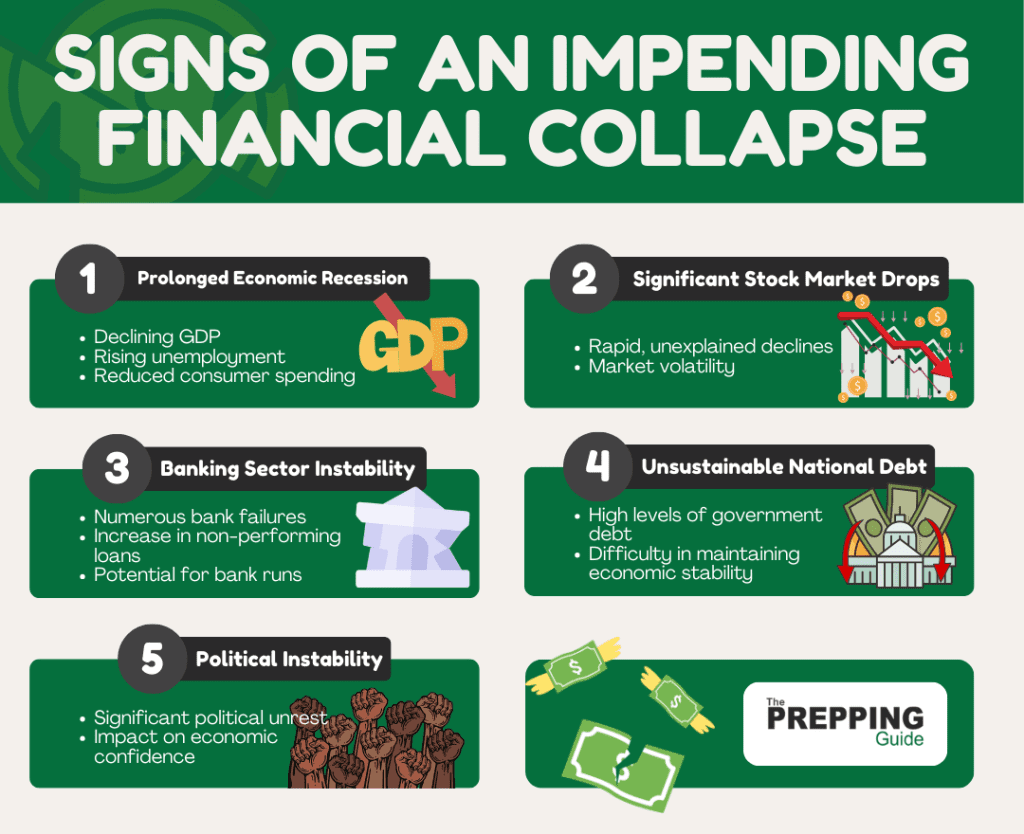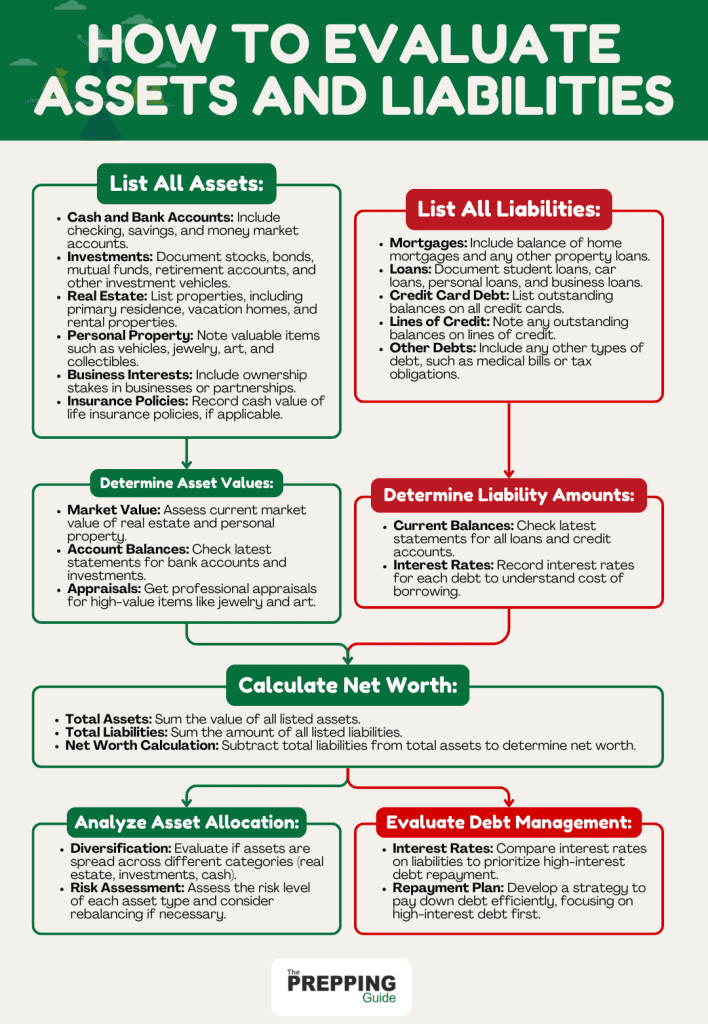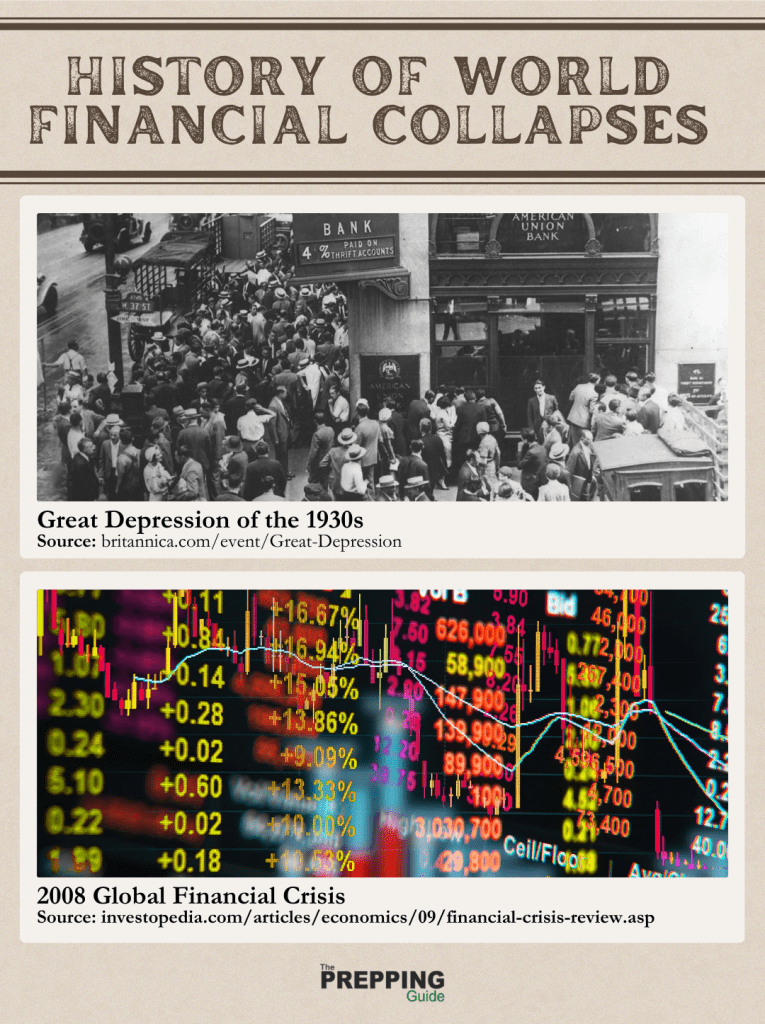
Imagine waking up one morning to find that the value of your savings has plummeted overnight, stores are struggling to stock essentials, and economic news is filled with words like “recession” and “crisis.” It's a scenario that many of us prefer not to think about, but the reality is that financial collapses have happened before and can happen again.
Understanding Financial Collapse
A financial collapse occurs when a country's economic system fails, leading to widespread financial instability. This can result from severe market crashes, banking system failures, or governmental financial mismanagement. When a financial collapse happens, it typically leads to a significant loss of wealth, increased unemployment rates, and a decline in the standard of living for the affected population.
Signs of Impending Financial Collapse
Recognizing signs of an impending financial collapse can help you take proactive steps to safeguard your finances. Indicators include prolonged economic recession, instability in the banking sector, unsustainable national debt levels, and political instability.
Preparations of the Wealthy
The world's wealthiest individuals prepare for financial collapses by investing in assets like real estate and precious metals, focusing on personal safety and self-sufficiency, and creating strong safety nets.
Assessing Your Financial Situation
Understanding your current financial situation is crucial for preparing for a potential financial collapse. Evaluate your assets, liabilities, income, expenses, and financial vulnerabilities.
Building a Financial Safety Net
Establishing an emergency fund, diversifying income sources, reducing debt, and investing in tangible assets are essential steps in building financial resilience.

Creating a Sustainable Lifestyle
Cultivating a sustainable lifestyle involves making choices that reduce reliance on external systems, increase self-sufficiency, and focus on quality over quantity.
Preparing for Short-Term Disruptions
Having a plan for short-term disruptions includes assembling an emergency kit, creating a family emergency plan, and ensuring quick access to essential supplies and information.
Ensuring Financial Preparedness
Setting up an emergency fund, maintaining access to cash, reviewing and adjusting financial plans, and staying informed and adaptable are key aspects of financial preparedness.
Protecting Your Finances
To safeguard your finances, diversify assets, invest in precious metals, explore cryptocurrencies cautiously, and stay informed about economic indicators and trends.
Following Trusted Financial Experts
Listening to trusted financial experts such as economists, financial analysts, and investors can provide valuable insights and guidance during uncertain times.
Updating Your Plan Regularly
Regularly reviewing and updating your financial plan ensures alignment with your current needs and goals, enhancing resilience in a changing economic environment.

Stay Ready for Anything
By assessing your financial situation, building a safety net, creating a sustainable lifestyle, developing practical skills, and staying informed, you can enhance your financial resilience and navigate financial collapse confidently and securely.
FAQs
What should I do if I lose my job during a financial collapse?
How can I protect my retirement savings during a financial crisis?
What are the best ways to secure my home and family?
How do I start preparing if I have limited financial resources?
The post How to Prepare for Financial Collapse: Essential Steps for Financial Resilience appeared first on The Prepping Guide.
—————————————————————————————————————————————————————————————–
By: thepreppingguide
Title: Preparing for Financial Collapse: A Comprehensive Guide to Financial Resilience
Sourced From: thepreppingguide.com/prepping-financial-collapse/
Published Date: Wed, 31 Jul 2024 16:15:46 +0000

